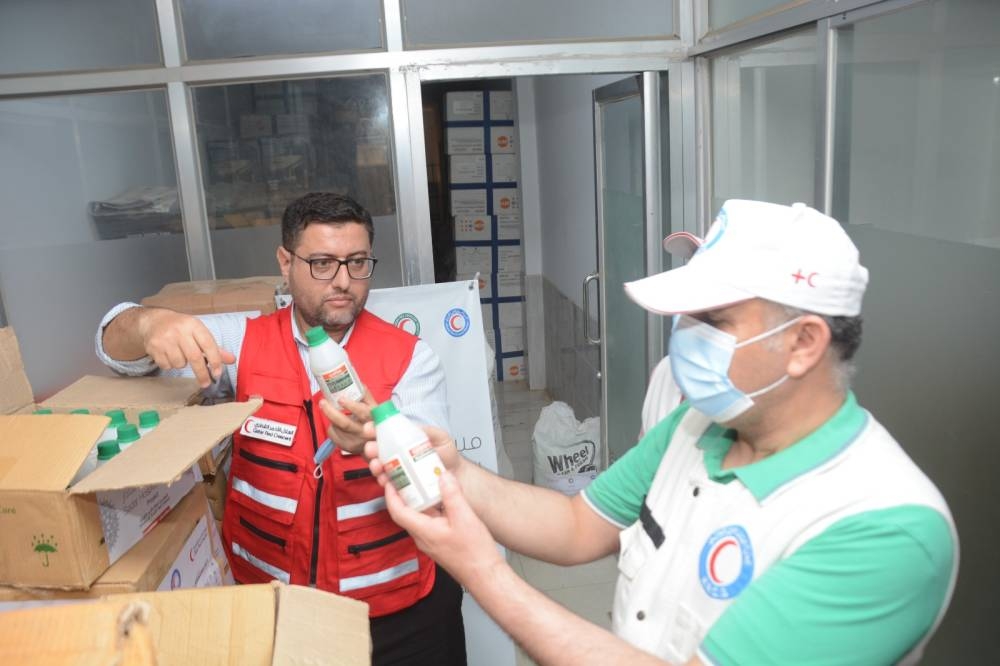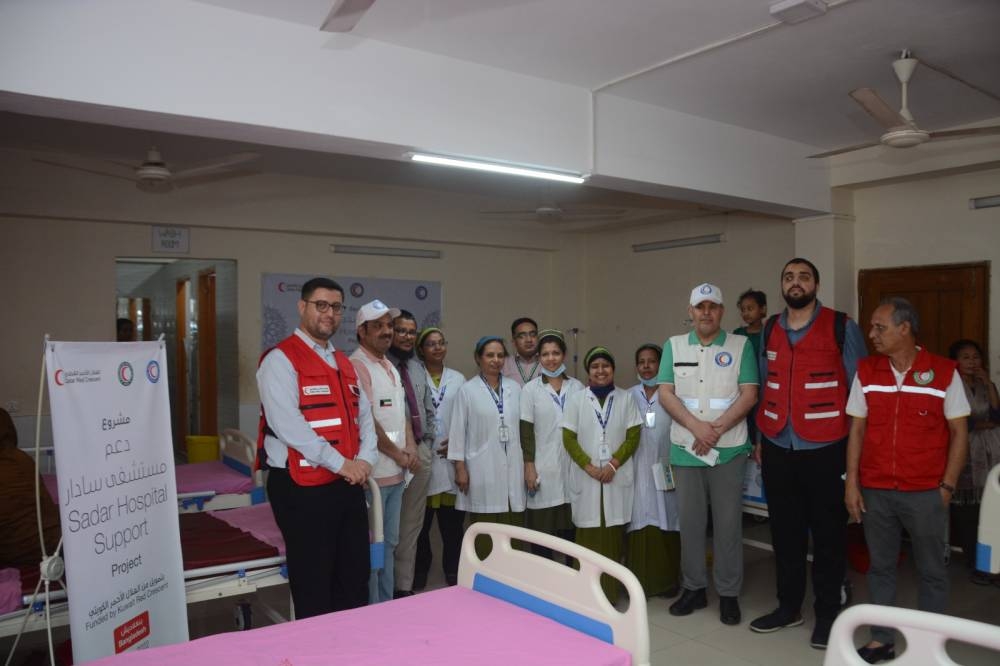A joint delegation from the Qatar Red Crescent Society (QRCS) and Kuwaiti Red Crescent Society (KRCS) has launched a project to support District Sadar Hospital in Bangladesh.
With funding from the KRCS, the project is carried out by the QRCS’s representation mission in Bangladesh, in co-ordination with the Bangladesh Red Crescent Society (BDRCS).
The project involves the procurement of 100 medical beds with all collaterals to support several departments of the hospital, especially the Department of Obstetrics and Gynaecology (Ob-Gen), to double its capacity.
The hospital’s warehouse has also received non-medical consumables, such as sterilisation and cleaning materials/tools, bedsheets, blankets, mosquito nets and other supplies that last for one year, with the aim of upgrading hygiene and reducing infection, a press statement notes.
The hospital offers primary and secondary healthcare services in diverse specialties for a community of 48,000 refugees and locals in Cox’s Bazar district.
The joint delegation handed over the in-kind donation to the hospital’s management, supervised the installation and operation of medical beds, and assessed their impact on medical care for inpatients.
They held a meeting with the hospital’s management to discuss the development process and how to best utilise the materials for the benefit of patients and meet the hospital’s ongoing needs.
Khaled al-Mutairi, volunteer management officer at the KRCS, said this project was part of their humanitarian support for the health sector in Bangladesh, in partnership with the QRCS, for the hospital to be able to receive more patients, amid a growing demand on healthcare in the district’s only central hospital.
Abdullah Fouda, donor relations expert at the QRCS, noted that the project came under the strategic partnership with KRCS that has resulted in joint humanitarian projects to support vulnerable people in many countries, including Bangladesh.
In particular, he said, they are about to complete a $3mn project to improve shelter conditions and healthcare for the benefit of more than 1,200 refugee families.
This project involves the construction of adequate housing units, as well as multiple free-of-charge healthcare services at camp clinics, such as medical examinations, treatment, and community outreach activities.
Abdelmounaim Mhindate, head of the QRCS mission in Bangladesh, said the project monitoring and evaluation visits, and meetings with patients and health officials, showed the great impact of the project.
Hospital chairman Dr Munir Alrahman thanked the QRCS and KRCS for this contribution, which would considerably help improve patient experience, sustain the hospital to continue to serve customers, and reduce infection rates.


